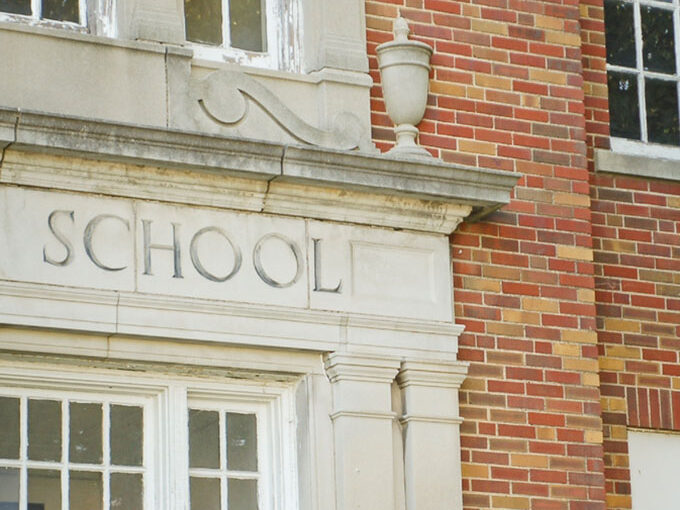Since 2017 there has been an ongoing challenge to the tax status of independent schools as part of several political manifestos. The threat comprises of two aspects. Firstly, the loss of charitable tax reliefs for independent schools, and secondly, the removal of the VAT exemption on school fees. In this article, we explore the potential impact of these challenges.
VAT on school fees
The VAT exemption for schools lies within the primary VAT legislation; the VAT Act 1994. `Schools’ are specifically mentioned in the legislation as being an education body which is exempt for VAT purposes. The independent schools sector benefits from not charging VAT on its school fees currently, however, as a result, input VAT recovery on costs is very limited as this is determined on the level of taxable income generated.
If independent schools are excluded from the VAT exemption, they will need to register for VAT and charge VAT on their fees. However, based on the current speculation surrounding this issue, it is not clear whether the exemption would continue to apply to charges for boarding.
Schools should be considering the impact of the removal of the VAT exemption in the near future, and assessing potential planning opportunities. There will be a transitional period in terms of the legislation being changed, however, at the point of any change to the legislation being announced, the change would be subject to anti-forestalling legislation. We have set out below potential planning ideas for the sector in this area:
Many independent schools operate schemes where parents pay school fees in advance, and in turn receive a return on their upfront payment. Such schemes could help with generating a tax point at the moment of payment rather than when the invoice is raised. Any change in legislation would be subject to anti-forestalling regulations which we would suggest would cap any payments in advance at the date any potential change is announced.
The pros and cons of such a scheme would need to be carefully considered, including how any returns to parents might be funded, and how the upfront fees would be invested and/or protected. From an accounting perspective, fees paid over the longer term are often required to be discounted and detailed disclosures may be required in the financial statements. However, there is precedent for such arrangements in the accounting guidance for the sector.
Once registered for VAT, schools can reclaim VAT on costs related to their taxable supplies, although for boarding schools, only partial recovery would be possible if boarding charges remained exempt.
Schools that have undertaken capital projects in the last 10 years which have cost more than £250,000 plus VAT may be entitled to some additional VAT recovery under the capital goods scheme on the basis that the assets will now be used at least partly for taxable supplies.
The removal of the charitable status of independent schools, which has been considered below, would not impact the VAT exemption.
However, some other tax matters would need to be considered.
Charitable status and tax reliefs
If there was a removal of charitable status from independent schools, it may be difficult to legislate as it would require a change to the current wide definition of education as a charitable purpose under the Charities Act 2011. It may, however, be possible to remove or restrict tax reliefs that independent schools currently enjoy which have been set out in more detail below.
Charities’ rates relief
Charities’ rates relief provides mandatory relief of 80% to charities, and some local authorities provide discretionary relief of up to another 20%. In Scotland, we have already seen the charity rates relief withdrawn from mainstream independent schools, leaving it in place for special schools and schools for musical excellence. The legislative change was made by adding land and heritages which are wholly or mainly used for the purposes of carrying on an independent school to the statutory definition of those that are ineligible for the relief (unless used by a special school or school for musical excellence).
Stamp Duty Land Tax (SDLT) and similar reliefs
Charities also have an exemption from SDLT in England and the equivalent property transaction taxes in Scotland, Wales, and Northern Ireland when property is purchased for qualifying charitable purposes. This includes for use in furtherance of the charitable purposes of the purchaser or another charity (eg school buildings) and as an investment, the profits of which are applied to the charitable purposes of the purchaser (eg property acquired by a charity and held as an investment). The rate of SDLT for residential property can be as high as 15% where the property is acquired by a company. Removing these reliefs could be more straightforward than removing other tax reliefs.
Relief from direct tax
Whilst there is no overriding exemption from direct tax for charities, including independent schools, there are specific exemptions for primary purpose trading, income from property, investment income and capital gains. To remove these reliefs from independent schools but not other educational charities, would require specific targeted legislation. The primary purpose trading exemption is one which most schools rely upon. If it were to be withdrawn it is unclear what additional tax would be generated. Many schools may find that, after deducting eligible expenses and the tax reliefs that are available to traders, such as capital allowances, their taxable trading profits are low and, if pupil numbers fall with the imposition of VAT on fees, lower still.
A common way for charities to mitigate their exposure to direct tax on income that is not exempt from direct tax is to use a trading subsidiary that donates its profits back to the charity and is thus able to claim a deduction for the donation against its taxable profits. If independent schools were to lose exemption from tax on their income, a similar structure could be considered with the subsidiary carrying on the school business and the charity owning the subsidiary and the school land and buildings.
There would be many considerations to take into account before such a structure is implemented. There would need to be numerous contractual changes including new staff contracts, Transfer of Undertakings (Protection of Employment) (TUPE) of staff, change of supplier contracts, teachers’ pension scheme considerations, and new banking arrangements. There may also need to be licence agreements put in place to allow the subsidiary to use the school’s name and brand, and that could be taxable income in the hands of the charity. The subsidiary is unlikely to be able to shed all its profits to the charity as it would need to retain a level of working capital.
Care would also be required to ensure the charity does not incur non-charitable expenditure or make non-qualifying investments if it incurs expenditure on behalf of the company or makes loans to the company. There could also be anti-fragmentation legislation to prevent this structure being used, including denying exemption from direct tax on income that the charity derives from the subsidiary, eg rental income, and preventing educational expenditure that is paid by the charity to the subsidiary – eg bursaries that the charity might provide for fees – from being regarded as income that is applied for charitable purposes.
Gift Aid
Gift Aid only applies to donations and does not apply to school fees or other payments for goods or services. To remove Gift Aid eligibility from independent schools, but not education charities generally, would also require specific targeted legislation.
There would clearly be many considerations and impacts if the current/future government was to make changes to the tax status of independent schools, and any potential changes would need to be thoroughly examined.
We work with a range of independent schools across the UK. For any further information on the points raised here, please speak to your usual Saffery contact, or get in touch with Sally Appleton.
Contact Us
Partner, Leeds
Key experience








